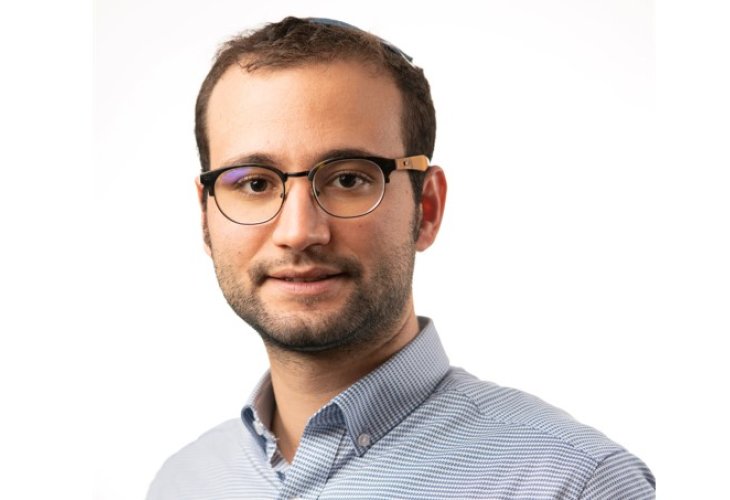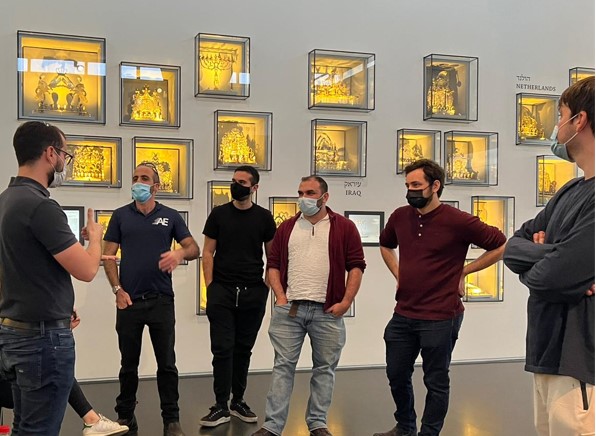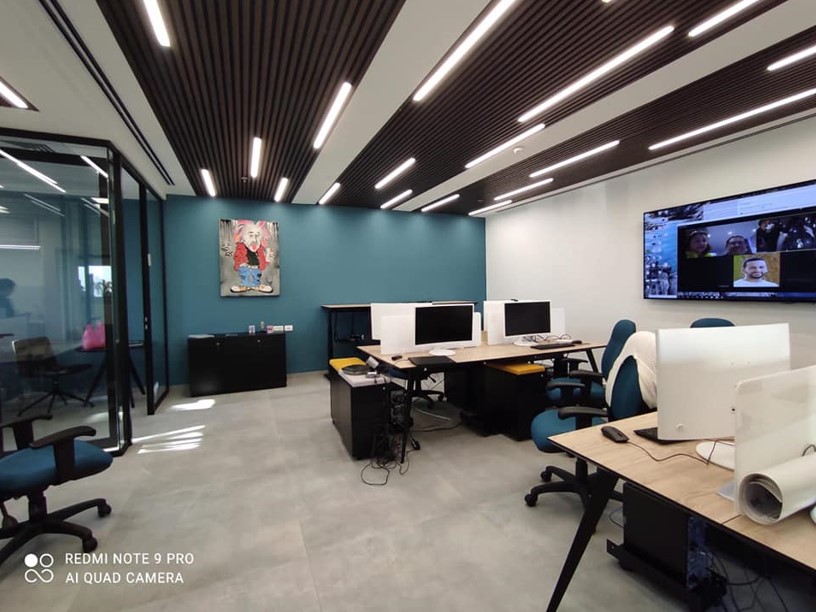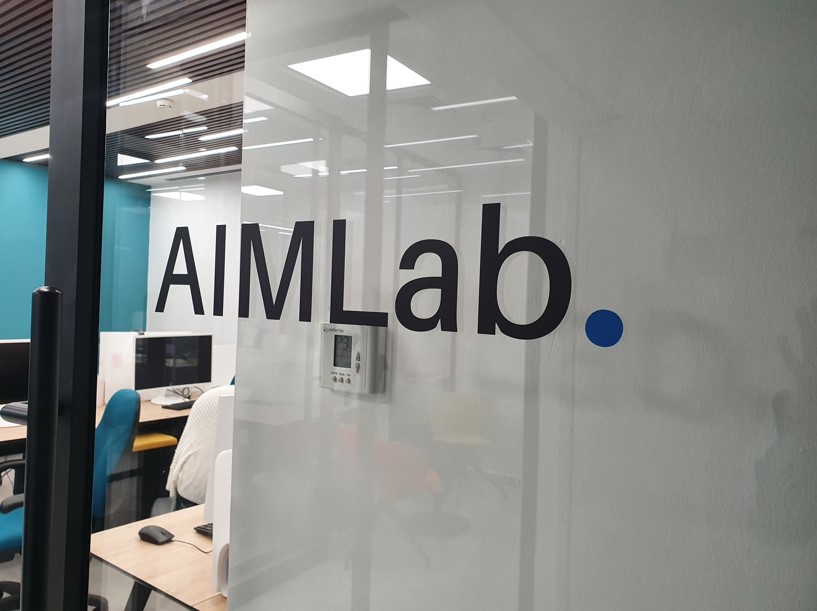Meet the Religious Young Man Who Became Faculty at 30 and Aspires to Save Lives
Dr. Joachim Behar, head of the AI in Medicine Lab at Technion, moved from France and is leading groundbreaking research. Discover the impact of AI on medicine, including COVID-19 treatments, and the sacrifices made due to his faith.
 Prof. Joachim Behar (Photo: Nitzan Zohar, Technion Spokesperson)
Prof. Joachim Behar (Photo: Nitzan Zohar, Technion Spokesperson)He is not yet 34, but he already heads the Artificial Intelligence in Medicine Lab at the Technion; he looks like a student, but the title next to his name confirms the surprising fact - he is a faculty member and has held this esteemed title for three years. Incidentally, at the time of his appointment, he was considered the youngest assistant professor in the country. And yes, he also wears a large kippah, which he wears with great pride.
Meet Dr. Joachim Behar, a brilliant young man who immigrated to Israel three years ago, confident that he is here on a true mission.
"I Came to Israel Without Family, Friends, or Language"
"I was born in France," he says, "I grew up in a city near the Swiss border. My family is traditional. *Baruch Hashem* since I immigrated to Israel, I have strengthened my faith significantly, and I am proud and happy to have found my place. Later, my younger brother also moved to Israel; he works in high-tech and, like me, lives in Haifa. Our parents remain in France for now, but they plan to move soon. It's just a matter of time until they can sell their house and make it possible."
He pursued his academic education over ten years: five years at the University of Saint-Étienne in France, followed by five years in which he completed his master's and doctorate at Oxford University in the UK. Twice he won the prestigious award in a competition for signal processing in the cardiology context, and many of his papers have been published in the scientific community within the field of AI research.
What made you decide to immigrate to Israel and conduct your professional work here?
"Honestly, I was offered to conduct my work at a university in Boston, and I'm sure I could have earned higher salaries abroad, but I wanted something different. Salary isn't everything in life, my life isn't just about money. I felt it was important for me to live as a Jew in my own country, and that was the only reason, despite any challenges."
Just days after completing his doctorate, he immigrated to Israel. "I arrived without family or friends, I didn't know anyone, nor spoke the language. The only Hebrew words I knew were from reading the *siddur*. It wasn't easy at all, I remember myself in a rented apartment, with six suitcases, understanding that maybe a position awaits me at the Technion, but beyond that, I had nothing."
However, he emphasizes, "There were challenging times, but I never regretted coming to Israel. It’s an amazing feeling to know you're working on groundbreaking research for your people. It's important to me to contribute my work to Israel and improve its healthcare services. My research primarily aims to save lives, and clearly, the most important thing, first and foremost, is to save the lives of the people of Israel. I would love to save the lives of others in the world as well."
Incidentally, as part of his role as a faculty member, Dr. Behar also leads many student groups in learning processes. "Some are my age, and some are even older," he says with a smile, "but I see no issue with it. I'm happy to guide the students, believing they will lead the field in the coming years. As part of this, just this week, we're promoting a very special competition of ideas in technology and science as contributors to the improvement of medicine. It's a large competition with around 70 students participating and winning monetary prizes of thousands of dollars."
 In Prof. Behar's lab
In Prof. Behar's labThe Aspiration: Advancing Medicine
When Dr. Behar talks about the fields he researches, it is clear he is very enthusiastic. It is a little challenging for him to explain the complex subject in simple words, but he tries nonetheless: "I research artificial intelligence in medicine. AI involves using computers and is considered the most leading field globally today. When discussing it in the medical context, the idea is to learn to use it to enable doctors to diagnose patients as accurately as possible, thereby improving the medical world.
"Currently, we are leading three groundbreaking studies at Technion - the first in the field of cardiology. We are conducting experiments to succeed in diagnosing several very significant heart diseases, all by computer. This project is already in advanced stages, and we are promoting it in collaboration with Rambam Hospital in Israel and hospitals in France.
"The second field deals with diagnosing sleep disorders, which also includes diagnosing other diseases, not related to sleep, but easy to diagnose when the person is sleeping because those are hours with almost no body movement, allowing more accurate data collection.
"The third and most interesting field deals with eye diseases. The eyes are unique in that they are the only body organ that can be looked at and through them, diagnose blood vessel conditions, allowing one also to learn about other ongoing body processes, such as cardiological diseases. We believe that thanks to our research, it will be possible by using AI to look at the eye, identify the various diseases, thereby saving invasive tests and being even more accurate in diagnosis."
Why use computer diagnosis when we have human doctors who can do the same thing?
"Obviously, a doctor can also do the job, but our aspiration is to create an algorithm that diagnoses data at such a high level, reaching the diagnostic level of the most senior doctor. This means if today there is a situation wherein each medical field has a few expert doctors in Israel, and the public wants to reach them, waits in long queues, and pays a lot of money - once the computer performs the diagnosis, this diagnosis can be provided in every hospital, everywhere, without needing to wait for the specialists. Ultimately, the diagnosis will be even more accurate than that of a doctor, because after all, a doctor is human and can make mistakes or be tired, while the computer continues to operate per the programming."
You're always talking about diagnosis. Do you not deal with treatment fields?
"Correct, we only research the field of diagnosis. But clearly, the diagnosis will directly affect the response, because once the diagnosis is more accurate, we can also provide the correct treatment to the person."
 In Prof. Behar's lab
In Prof. Behar's labGlobal Pioneers
Dr. Behar mentions that they recently embarked on a very significant study, examining the ability to provide diagnosis that predicts the diseases an individual may develop in the next five years. "We are currently diagnosing a specific disease related to severe heart rhythm disorders and attempting to develop an AI algorithm that can determine if our patient will develop this disease in the next five years."
Suppose you discover they are indeed likely to fall ill. Why is this important?
"First of all, there's the aspect of early treatment. Even in heart diseases, just like in cancer, it is very significant if the disease is diagnosed at stage 1 instead of stage 4. The earlier the diagnosis, the better the chances to treat and recover.
"Additionally, once we know there are people at risk of falling ill in the next five years, we can advise them on reducing their risk level, such as maintaining a healthy weight, avoiding smoking, and more. Ultimately, I believe AI in medicine can definitely save lives. It is one of the most innovative and leading things of our generation, and it is truly revolutionary - we can have a better impact on health."
Are there similar studies to those you conduct at Technion taking place globally?
"Yes, there are several studies worldwide addressing similar fields, but no hospital is using them yet. We aspire, *with Hashem's help*, to be among the first to spread the message, but it will of course take time."
How long are we talking? What's your estimate?
"It's a long process - initially, we're working on data from hospitals, then we conduct trials with other hospitals to ensure the methods work there as well, and only then do we bring this system to the patients themselves and test it in real-time. I think especially since the public recently hears about the stages vaccines and medicines go through for COVID-19, they can understand more than ever these processes, which can be very lengthy and exhausting. Of course, funding is needed to advance the research, so it's impossible to know at this stage when we will finally have results."
But Dr. Behar saves the real surprise for the end: "I completely believe AI in medicine could also bring breakthroughs in treating COVID-19. Over the past year, we've been working on developing an algorithm that provides the doctor with high-level information on the condition of critically ill patients in intensive care. Based on the data received, it can 'predict' whether they have reached the peak of the illness or are heading towards a worsening state. This will help doctors prioritize patients and know who needs urgent treatment. Of course, this development can also be used for patients with milder conditions, but that's not the point."
 In Prof. Behar's lab
In Prof. Behar's labYou are a religious person. Do you think your faith plays a role in the work you've chosen to do?
"Certainly. I think that being religious is what led me to my profession. I've always had a strong desire to work in a field that could help improve human health and where I’d find meaning. My work today is focused exactly on that. As I said, it's not about money at all. The only thing that interests me is helping people; I see it as a mission."
Have you ever had to give something up professionally because you're religious?
"No, never. The team members know I observe Shabbat and keep kosher, and they respect that very much. Even in meetings worldwide, these things are understood. Sometimes people ask questions, but it's always out of curiosity, not to offend."
He pauses for a moment, reflects, and then adds honestly: "You asked if I ever have to give something up, and the answer is yes. But it’s not a professional compromise; rather, it’s about study. I really love learning Torah and also make sure to study with two *chevruta* partners. It isn’t easy for me because my job demands many hours, but it enriches me greatly and gives me satisfaction. The sacrifice is that I wish I could study half the day in yeshiva; that was my aspiration as a young man. Sadly, it isn't possible for me, and yes, it's definitely a big sacrifice. *May I merit* someday."

